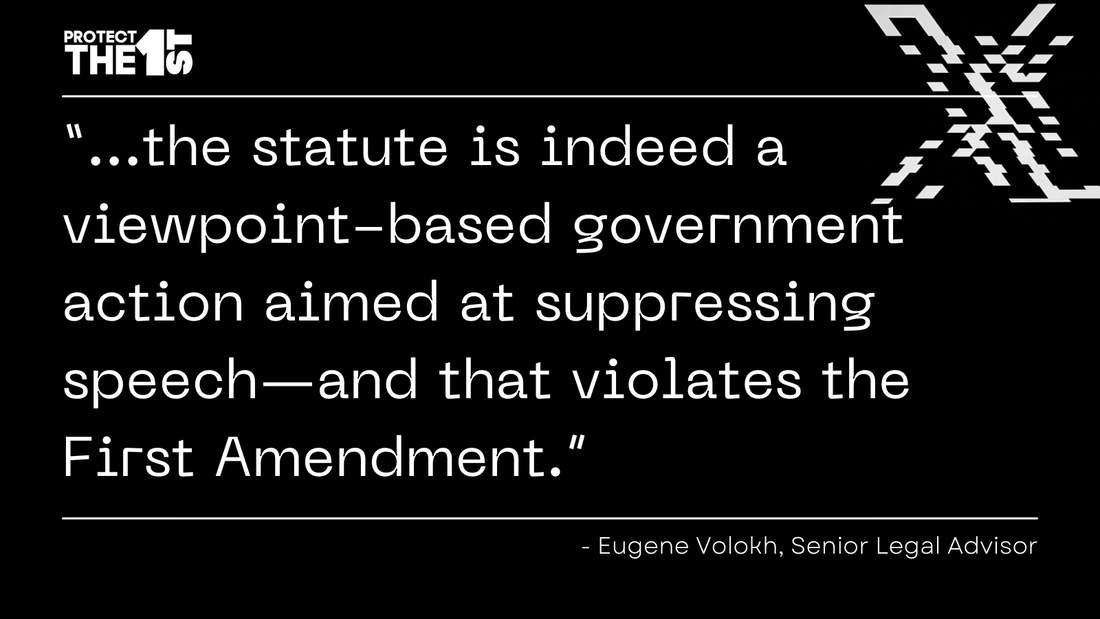|
When does a legal reporting requirement for a social media company become a violation of the First Amendment? When it drums up public and political pressure to enforce viewpoint discrimination.
This is the conclusion of legal scholar Eugene Volokh and Protect The First Foundation, which filed an amicus brief late Wednesday before the Ninth Circuit Court of Appeals asking it to overturn a lower court ruling that upheld a California law requiring social media companies to disclose their content moderation practices. California Bill AB 587, signed into law by Gov. Gavin Newsom in 2022, compels social media companies to produce two such reports a year on their moderation practices and decisions, to be published on the website of the California Attorney General. This law “violates the First Amendment’s stringent prohibition on viewpoint discrimination” by “requiring social media companies to define viewpoint-based categories of speech,” declared Volokh, Senior Legal Advisor to Protect The 1st. “The law also requires these companies to report their policies as to those viewpoints, but not other viewpoints ...” This brief supports the challenge from X Corp.’s lawsuit filed in September 2023 that also asserted that AB 587 violates the First Amendment, which “unequivocally prohibits this kind of interference with a traditional publisher’s editorial judgment.” Volokh and Protect The 1st cited the landmark U.S. Supreme Court case, NAACP v. Alabama (1958), in which the Court overturned an Alabama law that would have compelled disclosure of the NAACP’s membership lists. The threat behind this law, the Court noted, relied on governmental and private community pressures that would result in the harassment of individuals and discouragement of their speech. “Generating either massive fines or public ‘pressure,’ a euphemism for public hostility, triggers the most exacting scrutiny our Constitution demands,” Volokh told the court. “California Assembly Bill 587 violates the First Amendment’s stringent prohibition on viewpoint discrimination. And AB 587 does so by leaning on social media companies to do the government’s dirty work, either through fear of fine or public pressure.” The brief cites a Supreme Court opinion that states “what cannot be done directly [under the Constitution] cannot be done indirectly.” Volokh writes: “The intent behind the law is clear from its legislative history, comments by its enforcer (Attorney General Rob Bonta), and common sense. That intent is to strongarm social media companies to restrict certain viewpoints—to combine law and public pressure to do something about how platforms treat those particular viewpoints, and not other viewpoints. That confirms that the facial viewpoint classification in the statute is indeed a viewpoint-based government action aimed at suppressing speech—and that violates the First Amendment.” Protect The 1st will continue to report on X Corp.v. Bonta as an important flashpoint in the continuous struggle to keep speech free of official regulation. Comments are closed.
|
Archives
June 2024
Categories
All
|
ABOUT |
ISSUES |
TAKE ACTION |



 RSS Feed
RSS Feed